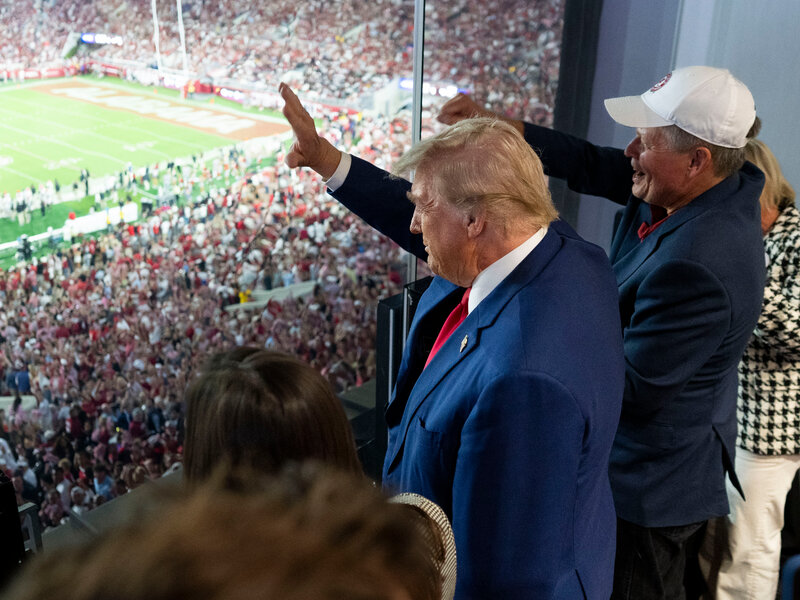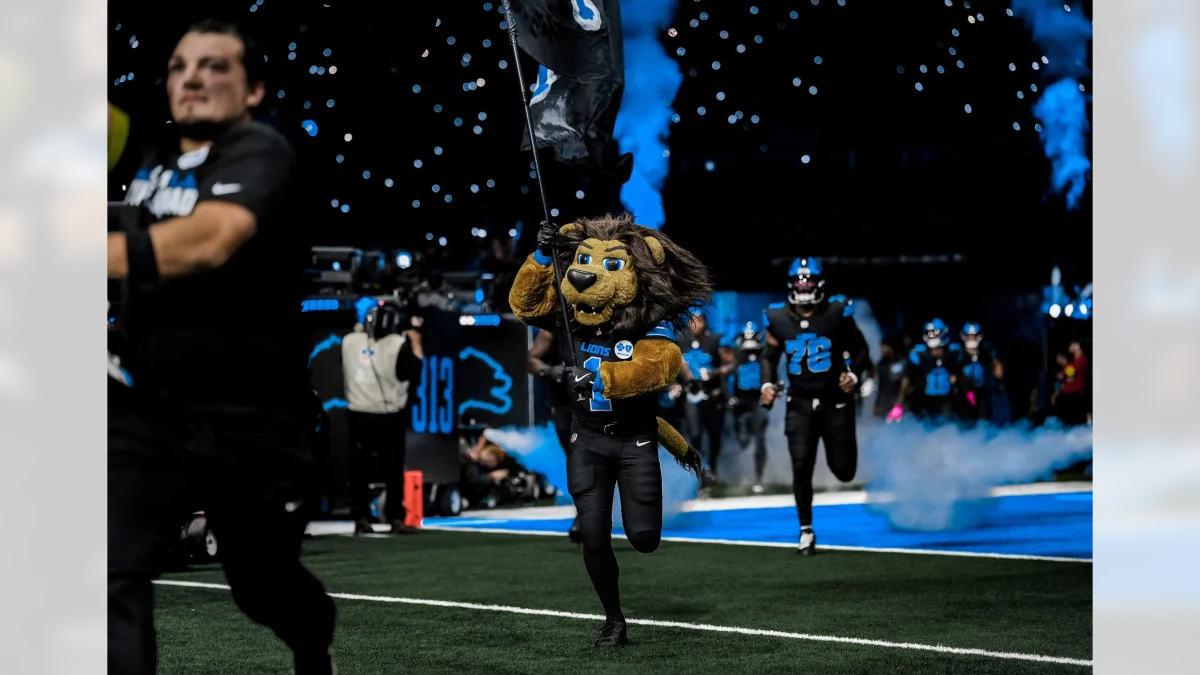Football’s role extends beyond the field this election season, as presidential candidates like Vice President Kamala Harris, former President Donald Trump and others use football to connect with voters nationwide.
Football has been a powerful tool for political candidates in this election. Due to its mass appeal, cultural significance and the chance for candidates to engage with voters in battleground states, football has been an avenue for voter connections this season.
Starting with Harris, she has attended only one football game recently, on Oct. 19, between the Tennessee State Tigers and Harris’s alma mater, the Howard Bison. At the game, Harris was in charge of the coin toss.
In contrast, Trump has emerged as the most visible presidential candidate on the football circuit, attending more games than any of his competitors this election.
On back-to-back weekends, Trump was spotted at the New York Jets and Pittsburgh Steelers game on Oct. 20 and the highly anticipated game between the Georgia Bulldogs and the Alabama Crimson Tide on Sept. 28.
Most recently, Trump planned to attend the Ohio State and Pennsylvania State game on Saturday, Nov. 2, but ended up not showing up. With Pennsylvania being one of the key battleground states in this election, it’s not a surprise that Trump attempted to double-dip in attending football games in the state.
Trump isn’t the only candidate capitalizing on football’s mass appeal. Tim Walz, the Governor of Minnesota and vice presidential candidate, has also embraced the sport.
Walz is no stranger to the football field and attended the Minnesota and Michigan game on Sept. 28. Also, Walz went to the football game between two Minnesota high schools, Mankato West and Mankato East. Walz formally coached the Mankato West football team for over a decade as a defensive coordinator.
In addition to Walz, Ohio Senator and vice president candidate JD Vance has also shown face at several football events leading up to election day.
While he was not physically at the game, Vance spent time with tailgaters outside of Lambeau Field ahead of the matchup between the Houston Texans and the Green Bay Packers on Oct. 20.
Furthermore, Vance attended the Appalachian State and East Carolina game on Sept. 14.
In addition to candidates attending football games, some interesting jabs have been made against candidates during multiple college football games.
Although neither of the candidates above attended the football game between the University of Michigan and the University of Texas on Saturday, Sept. 7, a political presence was felt in the form of a banner.
With 111,170 fans in attendance in Ann Arbor, a banner that read “JD Vance Ohio State + Project 2025” flew across the Big House. Notably, Vance is an Ohio State graduate who earned his bachelor’s degree in political science and philosophy in 2009.
While many other banners have been flown during football games across campuses in America, one of note includes the banner flown at the Georgia and Alabama game. With Trump in attendance, a banner that read “Trump’s Punting on 2nd Debate” flew across Saban Field at Bryant-Denny Stadium.
Beyond the field, football also had its place in the digital world during this election, with candidates using video games as a platform to engage younger voters. On Sunday, Oct. 27, New York’s U.S. Representative Alexandria Ocasio-Cortez and Walz played against each other in a Madden game.
Unfortunately for those tuned into the live stream, the Madden game itself was uneventful, at least from a gameplay standpoint.
While Walz and Ocasio-Cortez discussed Project 2025 and the current housing crisis in the United States, neither Walz, who chose to play as the Minnesota Vikings, nor Ocasio-Cortez, representing the Buffalo Bills, could find a way to put points on the board.
With the clock slowly ticking down in the second quarter, Ocasio-Cortez led the Bills inside the ten-yard line. Unfortunately for Ocasio-Cortez, she did not know how to call a timeout, and the pair stopped playing at halftime, resulting in a final score of 0-0.
As political candidates continue to leverage football’s cultural significance, the sport has certainly been an interesting strategy for candidates in the 2024 election.




